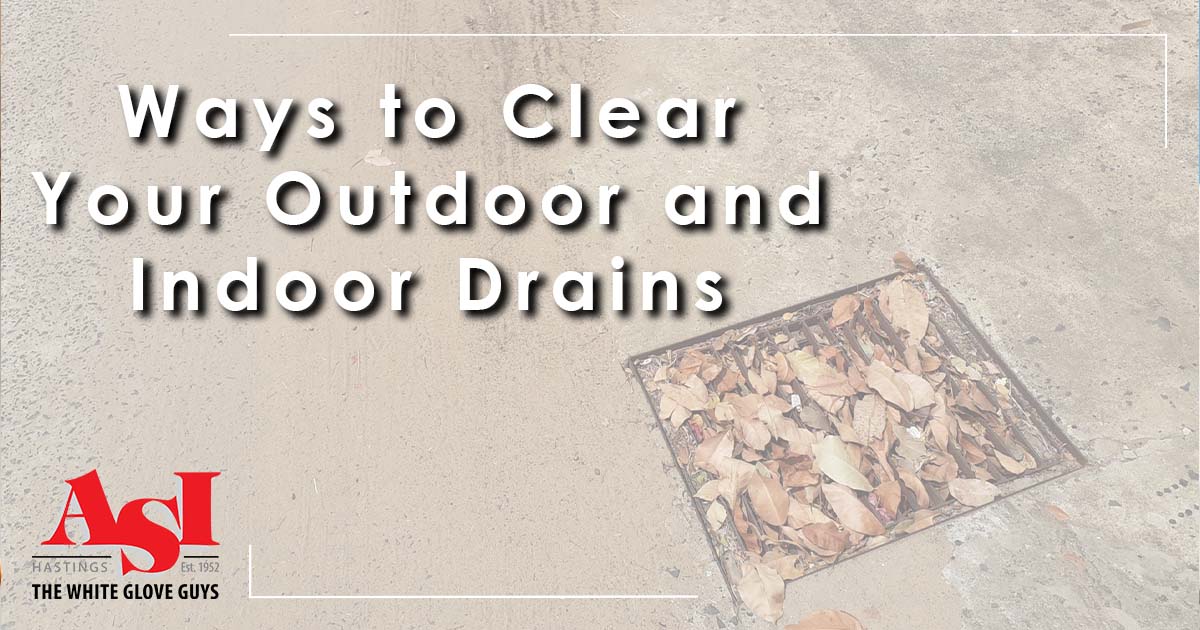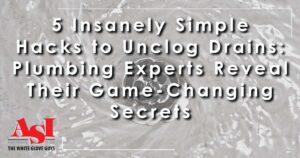Your sink, tub, and outdoor drains are usually not at the top of your mind. That is, until they stop working and create disruptions in your home. Drains can become clogged with hair, oil, fat, starch, foreign objects, or any number of things, keeping the water from draining and ruining your day.
Fortunately, not every drain clog requires a professional plumber for an emergency call. Some minor clogs or slow drains can be fixed with things you have around the house already. Here are some tips to clear your drain on your own.
What Are the Types of Indoor and Outdoor Drains?
Your home requires several plumbing systems to function properly. The potable water system brings clean water into your home for cooking, cleaning, drinking, and showering or bathing. The water you use is carried out of your home using the sanitary drainage system. Storm drainage is primarily outdoors and refers to weather-related drainage, such as stormwater.
Drains can become clogged with regular use. Your kitchen sink is likely to become clogged with cooking fats and oils or food debris. A bathroom tub or sink can become clogged with hair, soap, or other products. Outdoor drains can be clogged with moss, dirt, leaves, or tree branches.
In addition, virtually all of your drains can end up clogged with mineral buildup from hard water minerals, leading to slow drains. You may also have clogs from kids dropping toys down the drain.
Ways to Keep Your Drains Clear
Any major clog should be addressed by a professional plumber. But slow drains and minor clogs can often be handled at home. Here are some ways you can clear your drains on your own:
Pour Boiling Water Down the Drain
Many clogs or slow drains can be dissolved with boiling water. This is gentle and safe for virtually all drains, unless you have PVC pipes that may be melted from the heat.
Try Dish Soap
Liquid dish soap is used to break up grease on your pots and pans, so it could also work on your drains. You only need to try about an ounce or so of dish soap to see if it’ll work. If you use it too much, you’ll create suds that can solidify and worsen the clog.
Use a Home Remedy
If you usually reach for the chemical drain cleaner when you have a slow drain or clog, you could end up making your pipes worse. It may be effective, but it can degrade your pipes over time. Chemical drain cleaners also have caustic chemicals that can be dangerous for your skin and eyes.
Just mix one cup of vinegar and one cup of baking soda together, pour it down the drain, and rinse with boiling water. it may take some time to clear the pipes.
Try Drain Unclogging Tools
If you suspect that the clog is caused by a foreign object or hair balls, you can try to remove it with a plastic drain clearing tool. These are inexpensive and available at most hardware stores or department stores. They’re long and feature a barb to try to “grab” the debris and pull it out.
You can use the tool by inserting it into the drain as deep as you can get it, then pulling it back out slowly and carefully. If you’re not pulling anything up, try giving it a twist to capture the debris on the barb and pull it clear.
Some people use hangers in the same manner to unclog drains, but this isn’t as safe as a plastic drain tool. If you’re poking around with a metal hanger in your pipes, you could do damage or possibly get it stuck – then you definitely need to hire a plumber.
Take Apart the P Trap
If you have a serious debris clog that isn’t dissolving or coming up with your plastic drain cleaner, you may need to clear it by disassembling the pipe. Clogs often occur in the P trap, a curved bit of pipe that prevents liquid or gas from coming back up through your drain.
This is a simple plumbing job if you feel comfortable, but you can always call a plumber. Begin by locating the P trap and putting a bucket underneath to catch any water. Loosen the plastic nuts that hold the P trap together with tongue and groove pliers or a dry cloth rag for better grip.
Remove the trap’s elbow carefully and clear the debris out by pushing it into the bucket. When it’s clear, reassemble the pipe and test the pipe to see if the water will drain.
Dealing with a tough clog? Contact the pros at ASI to schedule an appointment!








